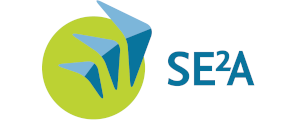Project description
In the project STENOS, the future scenarios pertaining to different business strategies of aircraft manufacturing and fuel production firms, and potential policies that promote the adoption of new emissions reducing technologies in the air transport system will be analyzed. The study will be conducted by using a combination of system dynamics and agent-based simulation modeling techniques to promote a sound understanding of the systems’ behavior.
Objectives
The main objectives of STENOS are
- Assessment of business models for aircraft and fuel manufacturers STENOS will determine the effect on the adoption rates of new technologies of different business strategies by the major stakeholder firms in the system. This will provide a better understanding of the set of strategies that are required from the stakeholder firms in the industry to reach the emissions reduction goals. At the same time, it will provide insights on strategies that can prove to be fatal for the system and limit the growth rate of adoption.
- Assessment of SAF policies There are different types of policies suggested, i.e., blending mandates and energy tax directives. STENOS will answer what their effect is on the adoption rates of sustainable aviation fuels (SAFs) in the system and how the potential contribution of single or a combination of policies can help reach the strategic goals of IATA and the emissions reduction goals.
- Sensitivity analysis of parameters on cumulative CO2-savings STENOS will conduct a systematic test of future scenarios regarding, e.g., availability, delivery and construction time of SE2A-planes, and air passenger development. Hereby, the sensitivities of the cumulative CO2-savings to the respective parameters can be determined.
